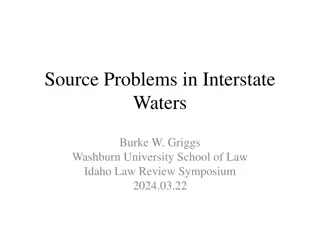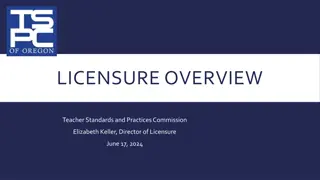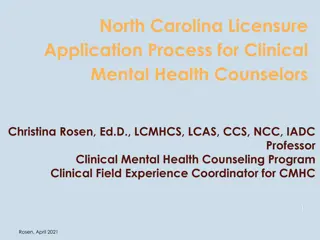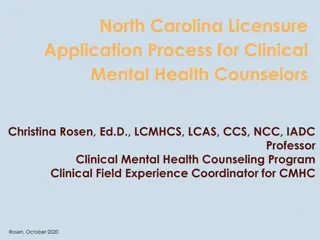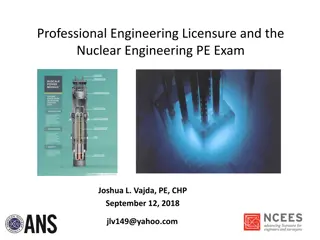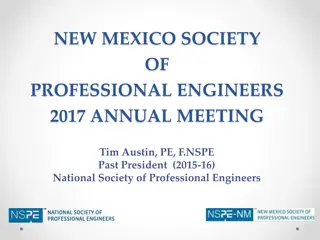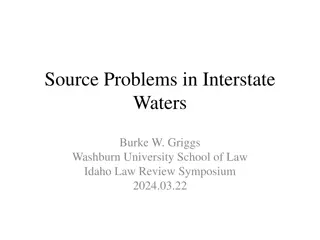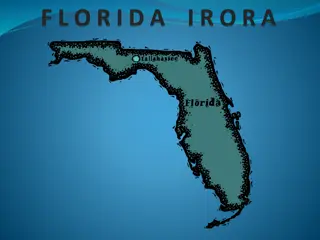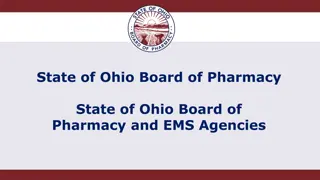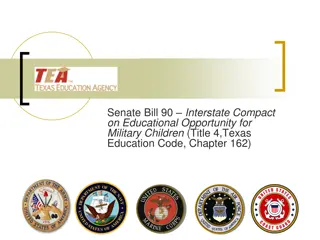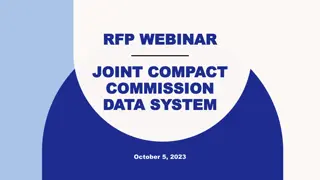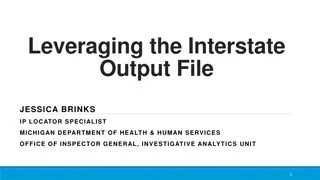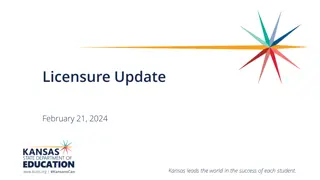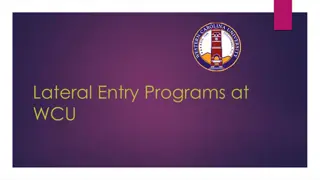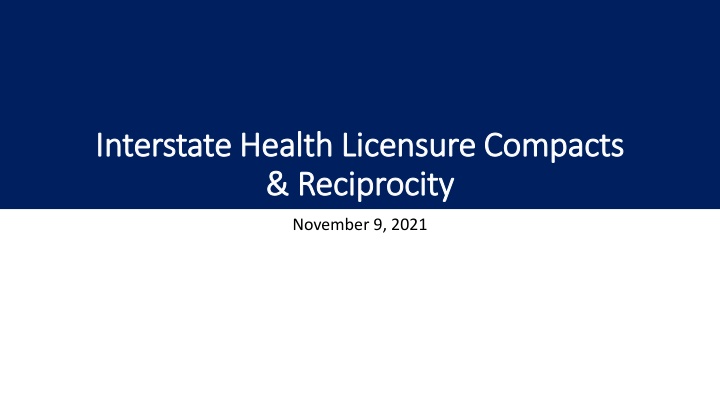
Expanding Occupational License Opportunities in Connecticut
"Learn how PA 21-152 (HB 6449) aims to facilitate professional licensure for healthcare practitioners moving to Connecticut, addressing military spouse employment challenges and exploring interstate licensure compacts. Find out about the Multistate Compact Working Group's review process and recommendations. Discover the potential impact on occupational licensing and economic opportunities in the state."
Download Presentation

Please find below an Image/Link to download the presentation.
The content on the website is provided AS IS for your information and personal use only. It may not be sold, licensed, or shared on other websites without obtaining consent from the author. If you encounter any issues during the download, it is possible that the publisher has removed the file from their server.
You are allowed to download the files provided on this website for personal or commercial use, subject to the condition that they are used lawfully. All files are the property of their respective owners.
The content on the website is provided AS IS for your information and personal use only. It may not be sold, licensed, or shared on other websites without obtaining consent from the author.
E N D
Presentation Transcript
Interstate Health Licensure Compacts Interstate Health Licensure Compacts & Reciprocity & Reciprocity November 9, 2021
PA 21-152 (HB 6449) AN ACT EXPANDING ECONOMIC OPPORTUNITY IN OCCUPATIONS LICENSED BY THE DEPARTMENT OF PUBLIC HEALTH AND CONSUMER PROTECTION Makes it easier for health care and certain licensed professionals in other states to obtain a credential if they move to Connecticut. Effective October 1, the Connecticut Department of Public Health and Connecticut Department of Consumer Protection will be required to issue the appropriate license or credential to a state resident, or the spouse of an active-duty service member stationed in Connecticut that meets specific experience and background requirements: Individual practiced safely in another state for at least four years; Meets Connecticut s examination requirements; and Completes the necessary background checks Agencies continue to have the discretion to deny a request if they find it to be in the state s best interest. According to the Department of Defense, approximately 35% of military spouses in the labor force work in professions that require state licenses or certification. In addition, military spouses are ten times more likely than their civilian counterparts to have moved across state lines over the last year. Even before the pandemic, military spouses faced a 16% unemployment rate.
PA 21-152 (HB 6449) AN ACT EXPANDING ECONOMIC OPPORTUNITY IN OCCUPATIONS LICENSED BY THE DEPARTMENT OF PUBLIC HEALTH AND CONSUMER PROTECTION (Continued) Required Department of Public Health to convene working groups to examine whether Connecticut should join any of the interstate licensure compacts The Department must report its recommendations by January 15, 2022. Connecticut is one of only seven jurisdictions that has not joined any interstate licensure compact.
Occupational Licensing Interstate Compacts Source: CSG, National Center for Interstate Compacts
CT Multistate Compact Working Group Overview Interstate Compacts Under Consideration RN Compact 38 States The working group met for a plenary session convened by DPH on October 18, 2021. Smaller groups established for each professional compact under review: Physician RN APRN Physical Therapy Psychologist Physician 35 States Participation & Process APRN 2 States (North Dakota, Delaware) Plenary session - Compact 101 Small groups to hear from relevant compact governing bodies, experts, Q&As Representative set of constituent groups meet to build consensus (hospitals/health care providers, practitioners, consumer advocates, labor, state agencies) Recommendations to legislature: January 15, 2022 Physical Therapist 34 States Psychology Interjurisdictional Compact 26 States
Potential Benefits Seamless pathway for mobility; regulatory certainty Facilitates the use of telehealth Supports families that move or wish to relocate to the state (e.g. military spouses) Protects public health and safety Increase access to highly qualified practitioners Strengthens labor markets; workforce development



